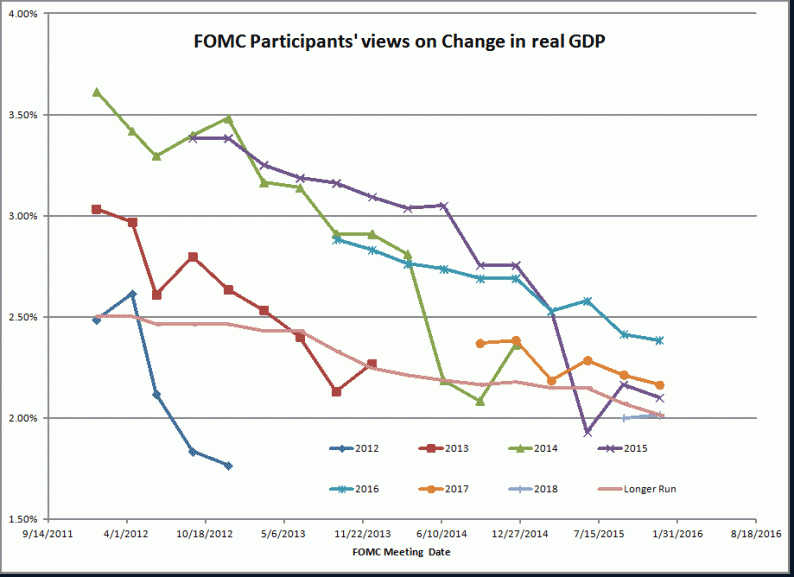If you always overestimate, and don’t change, what does that imply?
Since the FOMC started providing their estimates on economic aggregates four years ago, I’ve been simplifying them, and posted a weighted average to cut through the clutter of their releases. From the graph, you can see one thing that is consistent: They overestimate GDP. Far from seeing GDP over 3%, GDP has come in squarely in the 2% range.

It may even be that this is slowly wearing on the participants, who have progressively lowered their initial estimates of future GDP over time. You can see that in the initial estimates of GDP 2014-2018, and also the decline in long-term GDP moving from 2.5% to 2.0% in four short years.
The FOMC is no different than the rest of us — they are subject to groupthink and playing catch-up.

You can give them a little more credit on unemployment. At least things are going the way they would like. That said, improvement in the unemployment rate has exceeded their estimates, while GDP has fallen under their estimates.
They live in a bubble, so please don’t tell them that labor measures don’t correlate so tightly with the economy as a whole. I mean, in the long run, the correlation is high and significant, but as far as short-term policy goes, the relationship has a lot of noise, particularly amid globalization and improvements in technology.

Same applies to the PCE inflation rate… they think they can get inflation going (whether truly desirable or not). So where is it? Federal Reserve, you say you have the vaunted powers to create and destroy inflation. If you can do something, do it.
My guess is that the Fed won’t do it. As with most central banks, they have engaged in a game where they increase some aspects of internal credit, and in a way where precious little if any leaks out to the unfavored wretches with no access.
On the short-term bright side, they absorb government debt, which makes it easier for the US Government to keep our taxes low. On the dim side, central banks buying lots of government debt has tended to backfire in the past.
















Leave A Comment